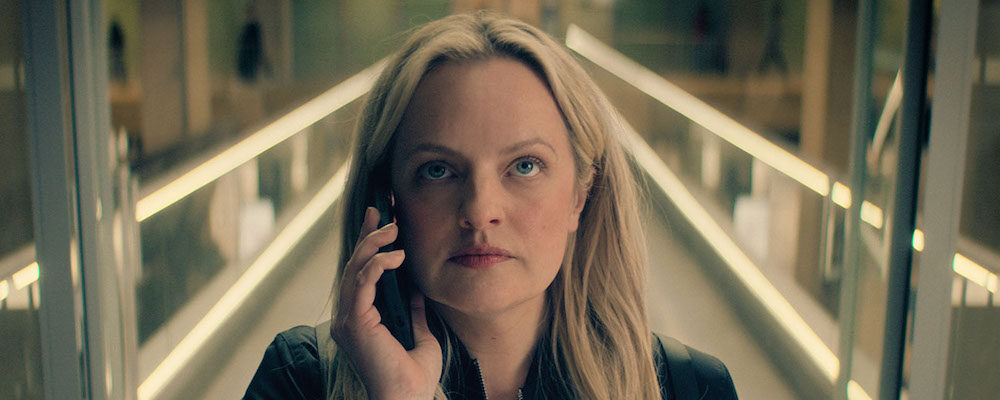Elisabeth Moss Turns ‘The Veil’ Into a Sharp International Hunt
Alci Rengifo
There are spy thrillers that depend entirely on the spy. Who plays the lead and with what attitude becomes crucial for the story’s real engagement. That’s the case with FX’s “The Veil,” an intelligent mystery propelled by the presence of Elisabeth Moss. Showrunner Steven Knight, whose material has dabbled between sharp and absurd, has clearly studied the espionage classics well for this project. He spins a good yarn but plays around with ideas of gender and geopolitics in relevant, fresh ways. Even now, female characters are rarely given strong angles in a genre typically dominated by macho male archetypes. The women at the center of this plot are so good the men tend to become afterthoughts.
As is traditional with spy thrillers, “The Veil” finds inspiration in modern headlines. Moss plays Imogen Salter (which might not be her real name) an MI6 agent doing the usual snatching of corrupt businessmen before ending up at the Syrian/Turkish border. She’s there searching among refugees for a woman, Adilah El Idrissi (Yumna Marwan), who is believed to be a top ISIS operative. Intelligence agencies are tracking information of an upcoming, major terrorist attack and need Adilah to cough up the details. After a prerequisite shootout, Imogen and Adilah hit the road for Istanbul and Paris. But Adilah claims she’s being framed and is not involved with any ISIS plot. She’s actually the daughter of a Communist freedom fighter from the Algerian war of independence, so why would she join a radical Islamist group? It’s Imogen’s job to find out through an intricate psychological standoff.
Technically “The Veil” is a limited series and only runs six episodes, though there’s plenty of room to keep the story going into another season. Knight wisely designs most of them to run a little over 30 minutes, so we’re not overloaded as with most streaming thrillers. His trick here is to keep much of the plot at surface level. Half the series is Imogen and her handlers wondering if Adilah is telling the truth about her identity. The material never gets too in-depth about the intricacies of the Syrian civil war, Middle East geopolitics or the origins of ISIS. Conversations get sidetracked into intriguing discussions on how belly dancing has been distorted as an art form by the west’s appropriation of eastern traditions. Flashbacks also give us many hints of both women’s pasts, involving childhood traumas or, in Imogen’s case, experiences on the field that have left their mark.
The other characters in “The Veil” are espionage standards that still work well. Dali Benssalah plays Malik Amar, a Muslim French agent who has a romantic link to Imogen. He has to walk that fine line between caring for her and staying focused on Adilah, since his own bosses also want a crack at either proving or disproving who she is. The CIA gets involved, of course, by sending their own super spy, Max Peterson (Josh Charles), one those guys who can apparently do anything and might ruin everything for the Europeans. Charles and Benssalah are convincing as opposing male archetypes. Malik is focused but caring while Max is written with a rugged American tone. He’s the tough guy from across the Atlantic coming over with little care for what these French and Brits think they’re doing. But they eventually can’t compare to Imogen’s skills. She doesn’t need male saviors. Her real challenge is assessing Adilah’s intentions. She could very well be stepping into a trap.
“The Veil” still delivers a lot of the country hopping spy thrillers require, with those necessary shots of Elisabeth Moss walking beneath the Eiffel Tower or shady characters sipping tea in Turkey. Notes are hidden in ancient manuscripts. Neon-lit lounges with belly dancers host important contacts Imogen and Adilah need to sit down with, first passing through henchmen who say one-liners like, “we’re done dealing with trash.” Sometimes the show depends too much on exposition by having Malik continuously calling his bosses back at headquarters, which always tend to be low-lit rooms with lots of screens. Verbal puzzles and clues drive the plot as opposed to endless shootouts. The show is streaming on Hulu, but as an FX production, it continues the studio’s tradition of making crafty thrillers dependent on good actors given characters we care for. Politically, not much is explosive here. More engaging is how the show challenges Middle Eastern stereotypes and the role of women in both the region and this genre.
For Elisabeth Moss, this is a welcome return to strong TV after being defined for years by her lead role in “The Handmaid’s Tale.” Like that series, this one has its own kind of feminist touch. Imogen is tough but vulnerable. She doesn’t need male saviors and has a dominant presence. It’s hard to believe that in the real world, spies would find the time to discuss the theories of orientalism while trying to cross the Turkish frontier, but Moss makes it work by making Imogen seem focused and maybe even a little jaded. She’s used to lying to others to get information, maybe now she has become the mark. “The Veil” is an entertaining game of identities and international suspense, held together by a performance from Moss, who proves she’s still growing after all these years giving us good television.
“The Veil” begins streaming April 30 with new episodes premiering Tuesdays on Hulu.

